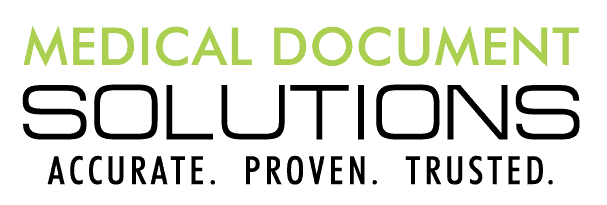The realm of healthcare is vast and intricate, with countless moving parts all working towards the collective goal of ensuring patient well-being. At the heart of this machinery lies the principle of continuous improvement. This principle gives rise to Quality Improvement (QI) Initiatives, dynamic programs designed to refine and enhance healthcare processes, services, and patient outcomes.
These initiatives, however, are not one-size-fits all endeavors. They necessitate meticulous tailoring to align with the unique needs and objectives of each healthcare organization.
If you are looking to more closely align your medical record abstraction with your own organization’s goals for QI initiatives, this guide is for you. Today, we’re covering best practices you need to know, starting with educating your staff.
Educate Your Staff on QI Initiatives
It is essential to consistently educate all team members about your organization’s QI objectives and targets. This educational process goes beyond merely conveying information; it aims to ensure that every team member comprehends the targets and understands how they will be measured.
Why is this education crucial? First and foremost, it creates a shared sense of purpose and direction among team members. When everyone understands the organization’s Quality Improvement Initiatives, they can align their efforts toward the common goal.
Moreover, education empowers team members to see the direct link between their daily tasks and the larger QI targets. When individuals understand how their actions contribute to achieving the desired outcomes, they become more engaged and proactive. This sense of ownership fosters a culture of continuous improvement and innovation, as every team member strives to contribute to the success of the Quality Improvement Initiatives.
To effectively educate team members, organizations can employ various strategies. These may include comprehensive training programs, workshops, informational sessions, and the provision of educational materials. The goal is to ensure that every team member is equipped with the knowledge and understanding necessary to drive the medical records abstraction process forward.
The Power of Real-Time Document Management
Bridging the gap between conceptual understanding and pragmatic execution, the role of real-time document management becomes evident. This proactive approach revolves around the principle of capturing QI data elements as they materialize within the clinical setting. The method aims to ensure an accurate and exhaustive data stream, reflecting the real-time state of operations, thereby enabling prompt and informed decision-making.
Another vital aspect of real-time document management is its ability to track and satisfy associated orders. By monitoring orders and ensuring they are closed once completed, real-time document management maintains a seamless and continuous data flow that truly mirrors the operational reality.
Upholding Consistency through Data Governance Standards
Data consistency and standardization are crucial for the efficacy of any data-driven initiative, more so for QI measures. For this reason, establishing data governance standards is a practice of paramount importance. Such standards provide a uniform structure to Electronic Health Records (EHR), ensuring that data entry location and format are consistent across the board.
The advantage of such uniformity is twofold. First, it simplifies data management processes, as all data entries follow the same format and are located in the same place. Second, it facilitates the identification and rectification of gaps in patient QI data.
By maintaining data in a consistent format and location, healthcare professionals can quickly identify missing information and take appropriate measures to address these gaps.
Sustaining Progress through Regular Audits
Following the implementation of real-time document management and data governance standards, one might question the sustainability of these practices and the resulting improvements.
Herein lies the importance of audits and measurements. By conducting regular audits and measuring the captured abstracted data, healthcare organizations can ensure they are making consistent progress towards their QI targets.
These audits serve as checkpoints, enabling healthcare organizations to track their trajectory and promptly address any deviations. More than just a tracking tool, audits foster accountability and transparency, upholding the integrity of the entire process.
Partner with a High Quality Medical Record Abstraction Vendor
At MDabstract, we outfit medical organizations with the means to comprehensively manage their medical records abstraction processes with our outsource ongoing documentation solutions. To learn more about how you can take better control of your own abstraction process and closely align it to your QI objectives, start with a 15-minute discovery call today.




